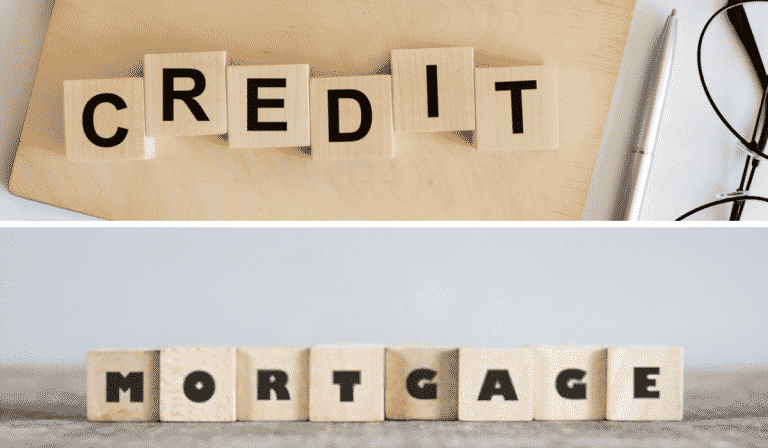How to Qualify For a Mortgage - What Credit Score Do You Need for a Mortgage?
Top 3 Tips to Qualify for a Mortgage
If you’re gearing up to purchase your first home, or you’re looking to move out of your starter home and into a larger place, you may have questions about how to qualify for a mortgage. Mortgages are one of the most common types of loans. However, they’re treated a bit differently than other loans, even those of a similar size such as business loans.
One of the criteria that bankers use to determine whether or not someone qualifies for a mortgage is their creditworthiness. Your credit score is a numerical value meant to indicate your level of creditworthiness, so it stands to reason that people with low credit scores are unable to qualify for a home loan.
So what credit score do you need to qualify for a mortgage? Is there a minimum credit score requirement for a mortgage? Let’s find out.
How Mortgages Work
What Is A Mortgage?
A mortgage is a loan backed by the property you’re purchasing. The home that you are buying acts as collateral and, if you default on your mortgage, the lender can take back the house through foreclosure. Mortgages are paid back in installments with interest.
The first thing to understand is that we are referring only to mortgages in the United States. Other countries do mortgage loans differently, as they have different laws that govern how banks and other lending institutions can provide mortgages. If you live outside the United States, some of these won’t apply.
Mortgages are not a new invention, but they didn’t become commonplace for average citizens until the late 20th century. The mortgage as we know it was first created by the Federal Housing Administration (FHA), which created mortgages with low down payments to allow more people to afford a home. The down payment is a lump sum paid upfront to reduce the amount of the loan. A typical down payment is 20% of the value of the home, but some mortgages require payments.
How Are Mortgages Paid?
When you pay for your mortgage, you pay for the principal (or the money borrowed), the interest, property taxes that are held in escrow, and insurance. Private mortgage insurance is also part of the payment if you put down less than 20% of the home’s value.
Mortgage loans, just like most loans paid in installments, amortize. Amortization is the gradual repayment of interest accumulated with the payment of the principal. You start by paying mostly interest, and then over time, more of the payment goes to the principal. This is important to understand because this affects how much equity you have in your home as you pay down your mortgage. Equity refers to your home’s value, minus the amount of principal (not interest) you still owe on your mortgage.
Mortgages and Interest
Mortgages tend to be very long-term loans. The most common mortgages are 15-year, 20-year, and 30-year mortgages. These mortgages are popular because your monthly payment gets lower the longer you stretch out the mortgage term. Because of this, though, many mortgage lenders will end up paying more than the value of the home (at the time of purchase) in interest.
There are generally two types of mortgage loans: fixed-rate mortgages, and adjustable-rate mortgages. Fixed-rate mortgages charge a flat interest fee that never changes throughout the life of the loan. Once you get a fixed-rate mortgage, your interest rate is locked in for the term. Adjustable-rate mortgages have interest rates that change with the market.
Both types of loans have pros and cons. Fixed-rate mortgages have higher initial interest rates, but they allow for a stable home loan payment that doesn’t change regardless of market conditions. Adjustable-rate mortgages tend to have lower at the outset, but if something happens (such as the Fed raising interest rates, or a credit crisis) then you can see your rates skyrocket.
Adjustable-rate mortgages have gotten lenders into trouble in the past when interest rate changes mean that they can no longer afford their payments. Home loan defaults were a major contributor to the 2008 financial crisis, and this caused many lenders to look at the riskiness of the loans they gave out. As a result, mortgages started to have more stringent requirements, one of which is good credit.
How Credit Scores Work
Your credit score is a 3-digit number between 300 and 850 that aims to assess how creditworthy you are to a lender. You don’t just have one credit score: you have multiple credit scores, all used by different lenders. However, the credit scores you’re given by credit bureaus and credit score sites such as CreditKarma will give you a good idea of what other lenders see.
Your credit score uses data from your credit report to calculate your score. Credit scores are calculated using 5 components, which are:
- Payment history. Have you made all your payments on time? Do you have past-due payments? Are you currently in default? Lenders care most about whether or not their loans were paid on time.
- Amounts owed. How much of your available credit are you borrowing? How large are your loans in total? The more you’re borrowing, the less creditworthy you are.
- Length of credit history. How long have you been borrowing? How old on average are your credit accounts? How old is your oldest and newest account? The older, the better.
- Credit mix. Do you have a variety of different types of loans? A wider variety of loans indicates creditworthiness, as it shows that the borrower can handle different types of debt.
- New credit. Do you have a lot of new credit accounts? Too many new credit accounts can hurt your credit score.
The higher your credit score, the more access to credit you have. There are benefits to having a perfect 850 credit score! However, your credit score is far from the only factor used in determining whether you qualify for a mortgage.
How To Qualify For A Mortgage
What Do Lenders Like To See?
- Stable income for at least two years. Employment is generally seen as a plus, although self-employment can be used if you have proof of stable income over the past two years. The more, the better, particularly during times when credit is tight.
- A low debt-to-income (DTI) ratio, which is the percentage of monthly gross income that is used for debt payments. Typically, mortgage lenders won’t give a mortgage to someone with a debt-to-income ratio above 43%, but that’s an absolute max with 36% being seen as more attractive. Mortgage lenders want to see a DTI ratio much lower than that, particularly if you’re not making a substantial down payment.
- A clean payment history. If you’re missing payments, particularly credit card, rent, or previous mortgage payments, this could be a knock on your application and could prevent you from getting a loan. Generally, they’re looking at the past two years of your credit history (rather than the 7 years that your credit report keeps).
- A high credit score. We’ll discuss this further in-depth in the next section.
What Credit Score Do You Need To Qualify For A Mortgage?
For most private loans, there is no absolute minimum credit score that you need to qualify for a mortgage. The best interest rates are given to people with credit scores above 760, or people with “excellent” or better credit. A good credit score can save you a significant amount of money on interest over the life of your loan.
There are some types of loans that do have a credit score requirement, though, and most of them come from the government.
FHA Loans
To get a low down payment FHA loan (3.5% down) as a first-time home buyer, you need a FICO score of at least 580. You can qualify for an FHA loan with a lower score, but you’ll need to put at least 10% down. You can do this with properties that have 4 or fewer units in them, and you must live in the house you purchase.
VA Loans
VA loans don’t have a minimum credit score, however, the government is not the issuer of VA loans. Instead, they simply guarantee them. A typical VA lender will look for someone with a credit score of at least 580 to 660.
If you want a home loan, but think your credit score is preventing you from qualifying for one, you may need credit repair. Check out The Credit Pros’ credit repair options to see if credit repair is right for you!



